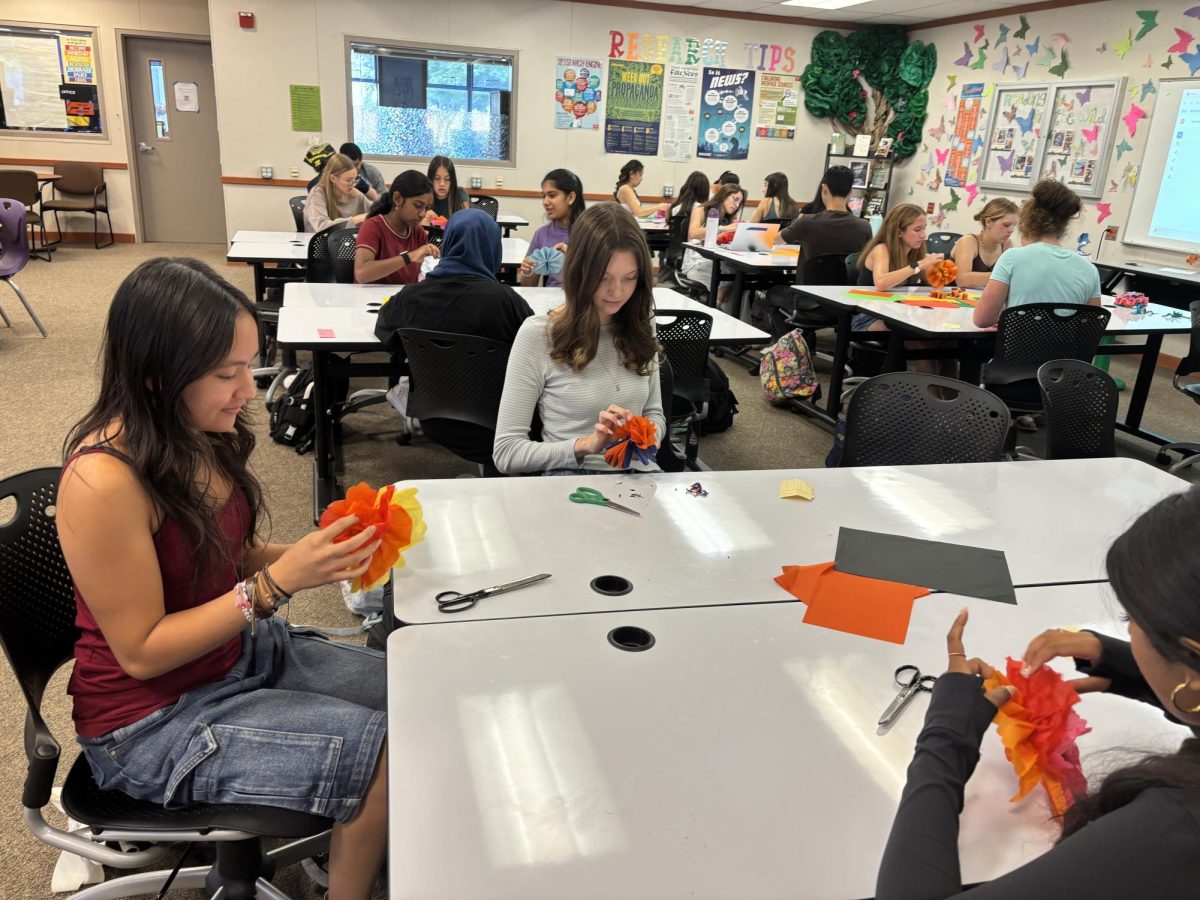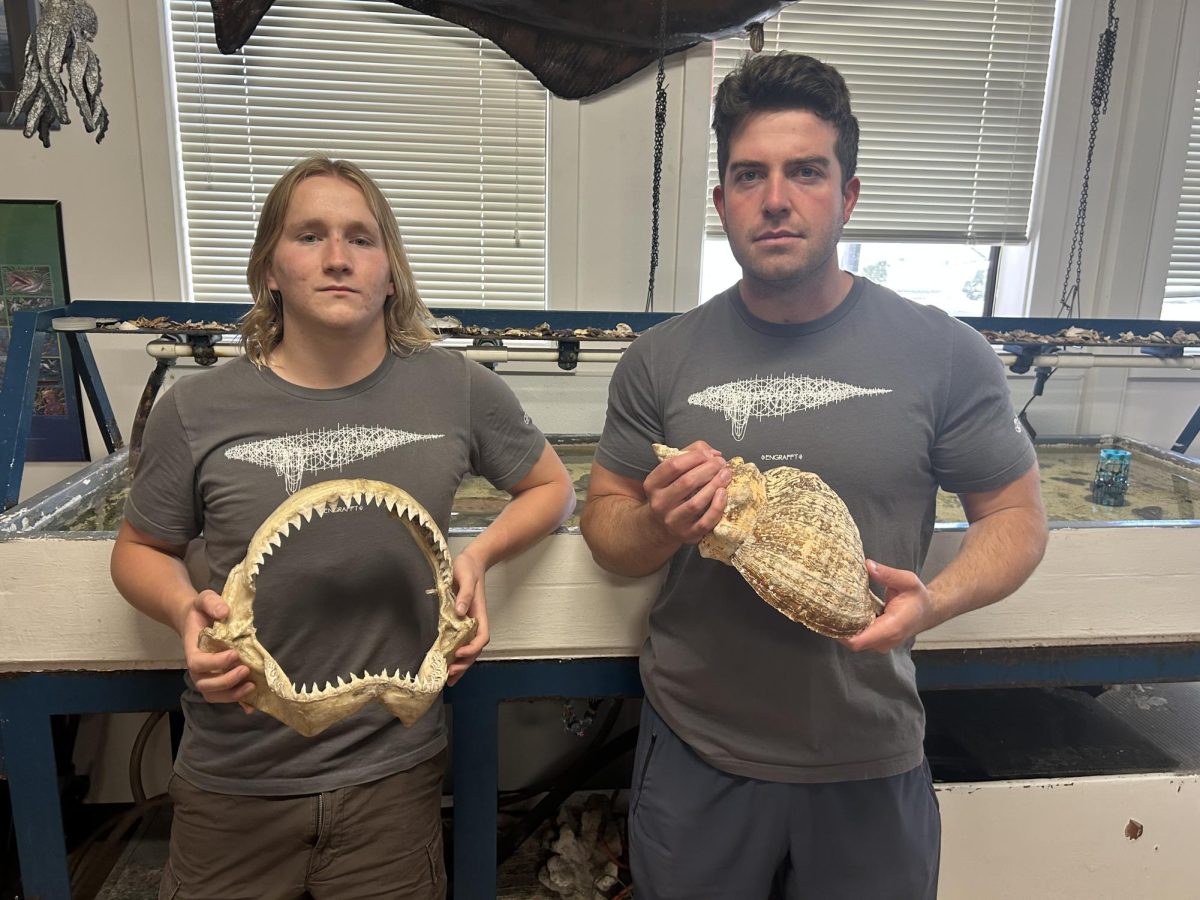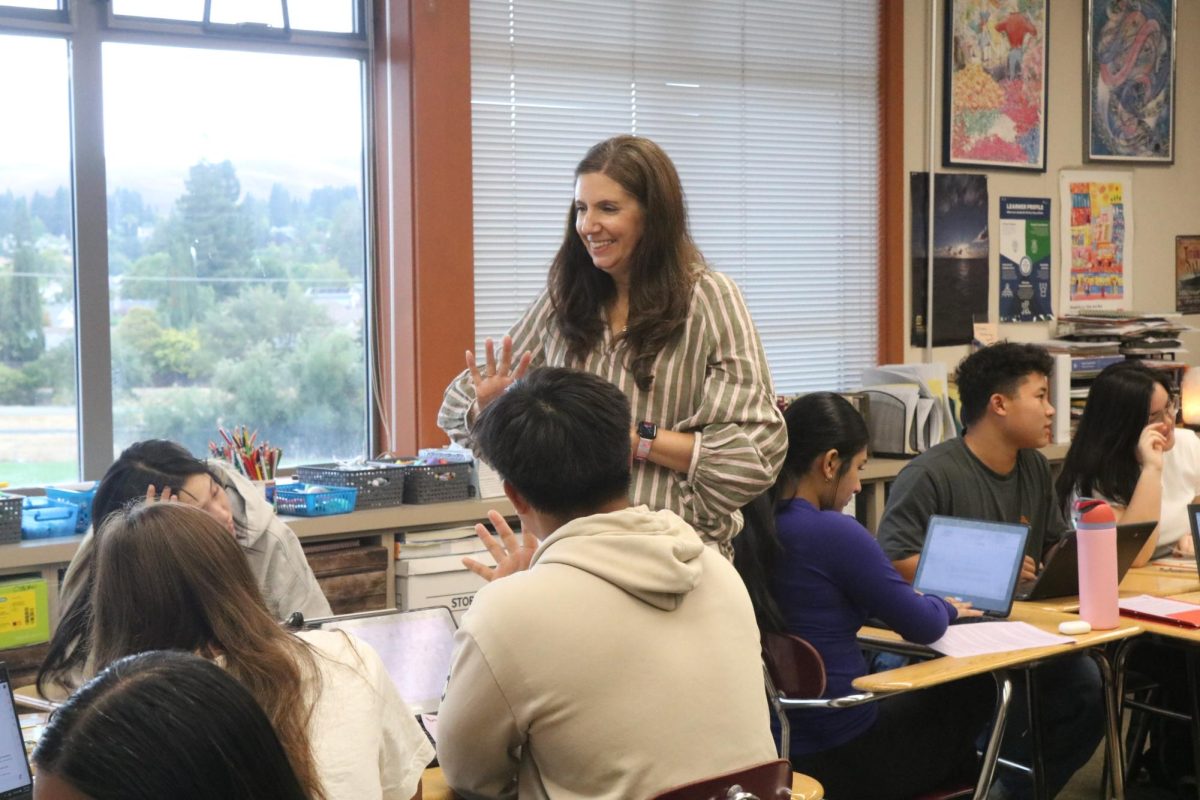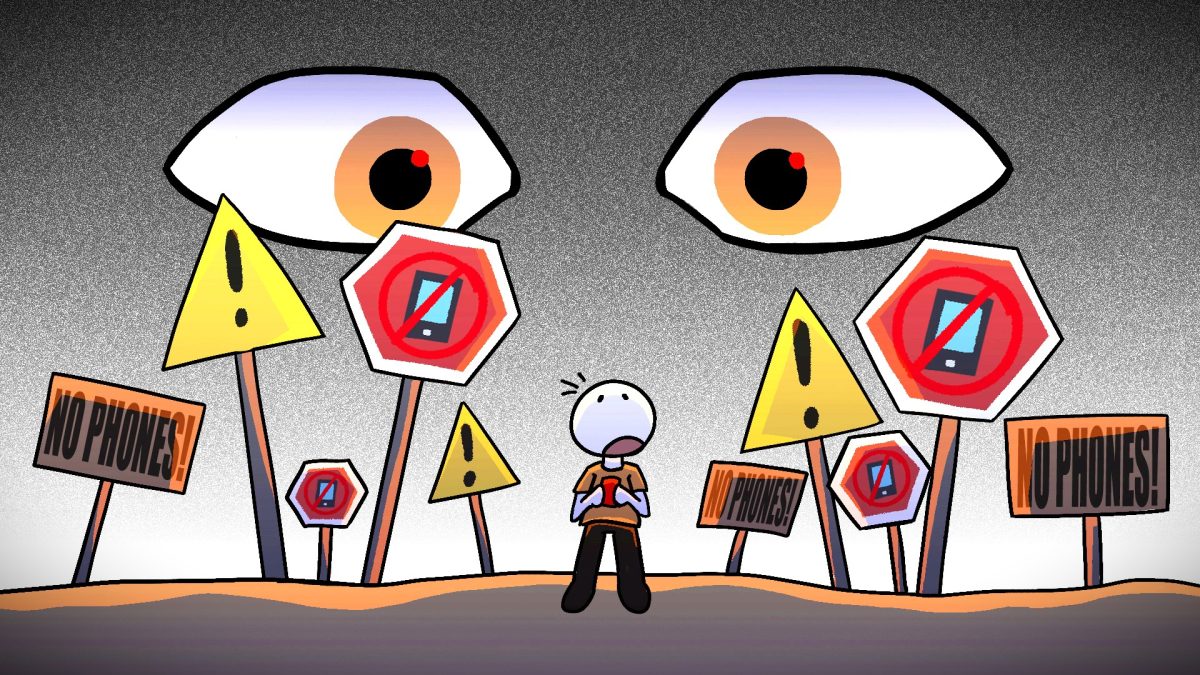The Shree Mangal Dvip School is located in Namo Buddha, a remote, mountainous region outside of Kathmandu, Nepal. The school has about 500 students, all of whom are without access to electricity.
Cal High students in the One Million Lights Club are working to change that.
The club provides solar lanterns to kerosene-dependent communities around the world, such as Namo Buddha.
The club is based off the One Million Lights Foundation, a non-profit Bay Area organization.
Juniors Mahek Pathak and Esha Maiti first met representatives from One Million Lights at a summer program hosted by Bay Area solar company SunPower.
One Million Lights’ mission is to improve the lives of children and adults by providing clean and healthy lighting. Their goal is to distribute one million solar lights to replace kerosene lamps, according to their mission statement.
There are more than 1.6 billion people in the world who lack electricity and depend on kerosene fuel, which is both flammable and dangerous.
It is also responsible for 1.5 million deaths per year, according to the One Million Lights Foundation.
Pathak and Maiti began the club to raise funds to donate solar-powered lanterns to a school they would adopt in Nepal.
They encouraged their friends to join, and have a goal of raising $5,000 by April. The club has various strategies to fundraise for solar lanterns.
“We fundraise through various bake sales and schoolwide charity,” said sophomore Michelle Xue, the club’s treasurer.
The club has raised approximately $400 in the past month.
Junior Jasmine Dohemann, the club’s vice president, has been a staunch supporter of the One Million Lights movement.
“You don’t realize how big of an impact our money makes on people’s lives,” said Dohemann, noting that $400 supplies about 30 lanterns for kids.
The club will soon start writing letters to the children at Shree Mangal, and the kids can use their new lanterns for light to write back. The club also wants to adopt another village in the Philippines.
“I wanted to do something bigger than myself,” said Dohemann.
History teacher Scott Hodges was involved with SunPower last summer as well, and is familiar with One Million Lights. Hodges believes there are an infinite number of possibilities available in order to create progress.
“I think it requires a lot of self-organization,” said Hodges. “If you have a passion about it, then you can go anywhere from there.”
Junior Jiehee Suh, the club’s secretary, believes students have an obligation to look after and aid those who live in impoverished and developing countries.
“Our responsibility is to share our fortune with the less fortunate,” said Suh. “If we have a chance to help someone who needs more than we do, then we should be all for it.”
Pathak believes that responsibility plays a large part in holding the cause of the club together.
“I think part of it is understanding the idea of philanthropy, and the other part is simply being a good human being,” said Pathak.
Chris Doherty, the club’s adviser, agrees.
“I think we should provide them with what they need,” Doherty said. “It’s not our responsibility to help, but good people do good things.”
Sophomore Matthew Yeung relishes being a member of the club because there are many volunteer opportunities for its members. He also enjoys spending time with his friends, who are members.
“It made me thankful for everything I have, and allowed me to never take anything for granted,” said Yeung. “I get to know that I am making a change, and it’s good to help other people.”
By providing solar lighting to thousands of people around the world, One Million Lights tries not only to change the lives of the students living in developing nations that were helped by the foundation, but also the lives of the helpers that provide their time, money and effort.
“When I help those in need, I learn more about them,” said Suh. “And when I learn more about them, I want to share my experience with other people. Hopefully, these people will find the same will to do so too.”





